We recently checked out the upcoming Gods of the Twilight game by Volutian Design – a unique and phenomenal visual novel-style game that we greatly enjoyed. Since the game was enjoyable, we were quite excited to conduct an interview with the very talented creators who made the game. We spoke with the Lead Developer Ashley Micks and the Narrative Designer, with the coolest name, Leandro Zantedeschi.
Q: For starters, let me congratulate you on a solid early access launch. Gods of the Twilight has some incredible art and music. I love mythology, so I definitely liked that aspect of the story. Great job all around.
AM: Thanks! And in terms of the art and music, we’re grateful to have found such awesome collaborators–RayDash for the character art and AudioCreatures for the music.
LZ: Thank you, that means a lot to us. We’re also big mythology fans, of course. We’ve been fortunate to find some great people to collaborate with for art, music, and voice acting. They’ve made this project much bigger than it could have been otherwise with their talent.
Q: Could you explain the lore of the world you’ve built? Who are the good guys, the bad guys, the level of technology, etc?
AM: It’s funny that you should mention good guys and bad guys because Norse mythology doesn’t really frame things that way. Odin is wise but also manipulative and has a nickname that means Evildoer. Fenrir kicks off the events of Ragnarök, but he was also wronged quite horribly by the gods he wishes to destroy. So which of them is the greater villain? Personally, I wouldn’t use that word for either of them. Characters on all sides are both relatable and flawed, which I would argue is more true to life. There is certainly conflict in the game, and you can find yourself at odds with various characters and organizations, but that depends on who you ally with. Even the player characters can choose to become quite tyrannical or destructive later in the game.
With that said, there are a few key groups you’ll run into early on. Some characters may turn out to be mythological figures, but generally, you meet them in human form first. Like the player characters, they may not yet remember who they are.
First are the assassins targeting each of the two player characters. You don’t know much about them at first, except that they’re sporting black-ops-level gear and seem to be hunting the protagonists because of their supernatural abilities. But once you reach Chapter 5, you’ll see there’s more to them than meets the eye.
Next are special forces and military intelligence. There are elements within these organizations that have been tracking the supernatural and preparing for the events unfolding now. They intend to prevent disaster and preserve humanity, but they have their own agendas, and you may or may not agree with their methods.
Collaborating with military intelligence is the Verkko Corporation. Verkko is the Finnish word for network, and it functions as an equivalent of Google, Amazon, Apple, Microsoft, and several others combined. They own all major online platforms and handle a disproportionate amount of the world’s data. We jokingly call them the capitalist equivalent of Big Brother from 1984, because they’re watching everything, or at least their algorithms are. They’re about as morally gray as the real-life companies I listed, but most people use their services and don’t think much about it.
The game begins in 2148, so just a step or two into the future, but not so far that everything feels alien. It’s still grounded in the reality we know, but it explores where we may be headed next. Cybernetics exist, but the only implant most people have is a HUD, which serves as an augmented reality display and allows them to control their phones via thought commands. Exoskeleton suits are a type of tech armor that enhances strength and speed to make someone essentially superhuman, but most criminals only dream of getting their hands on such a thing. And because the oceans have risen due to climate change, many coastal cities have moved their populations onto ocean platforms, which are giant city-ships. Cars are nearly all autonomous and coordinated by the city’s traffic AI. And, of course, the all-seeing algorithms know everything about you and tailor your user experience accordingly.
LZ: I think you covered most of it. When writing the lore for the world, we wanted it to feel both dystopian and alien but also eerily familiar. The way technology has been rapidly changing the world around us is hard to follow sometimes, the advent of AI technology, for example, has really changed things. So the story being in the near future means we can take all these things one step further and explore what kind of world we could be heading toward. But ultimately, we leave it to the player to draw their own conclusions and choose their own path. There is good and evil in the world, but there is also nuance, there are motivations that are not so easily explained, and these are complex characters with their own goals and perspectives. The objective of the game is ultimately to entertain the player, not to convey some sort of message about how the world should be in our opinion or who should be the good or bad guys in our viewpoint. So we trust our audience to play the game and make their own choices.
Q: What led you to employ Norse Mythology in the story? Do you have a particular interest in those realms?
AM: The characters in Norse mythology are incredibly colorful and relatable, both in their shenanigans and in their darker, more intense aspects. I was familiar with them before, but it really struck me when I read Neil Gaiman’s book, Norse Mythology, which is a great retelling for a modern audience. The Viking ethic of fighting to the death for what you want in life is also something I find empowering. They celebrate not only victories but also defeats that were gloriously fought until the end. The only true failure is giving up and abandoning your dreams.
LZ: It is a very rich well of ideas to draw inspiration from, and a lot of the most successful video games, movies, and shows of all time actually borrow a lot from Norse mythology, way more than some people might expect. There is a book I was reading called Norse Myths That Inspired Final Fantasy VII by the author M. J. Gallagher. And, of course, there are others that are more obvious in their inspiration. One of the most successful movie franchises of all time in the cinema has Thor as one of its main characters. Assassin’s Creed Valhalla, God of War: Ragnarök… There has definitely been a resurgence of interest in mythology, and especially Norse mythology, as of late. These are very, very old stories that have resonated with a lot of people through many years and have been recounted in many different ways. So we decided to really dive into the mythos in its original concepts, or at least the closest we have to that in a written accessible form in the current year, and try to give our own spin on it while remaining as respectful to the original tellings as possible. A lot of our ideas we changed or discarded entirely because there just wasn’t any basis for it in the original myths.
Q: Do you have plans for gods from other pantheons?
AM: This is a setting where all mythologies are true simultaneously. Ragnarök may be the main event of the game, hence the Norse focus, but we will run into other beings as well. As we suggest in the demo, the gods of different pantheons are sometimes just different names for the same beings as experienced by different cultures. For example, across the Proto-Indo-European world, there are at least a handful of gods who all look quite similar to Thor.
LZ: That’s all true. Yet one thing I will say is that it’s still a game with a focus on Norse mythology and the events of Ragnarök. The main actors on stage are Norse mythological figures, and we don’t plan to change that heavily.
Q: Just between you and me, how about an 18+ patch? Tutorial-Hektor said it’s “rated R,” but the girls in this game should attract the community, especially those who come from an anime background. Have you considered more fanservice?
Only the girls? Personally, I find just about all of our characters attractive, though that’s a bit self-selecting since I had so much input into their design! I would also say that things can get pretty spicy even with an R rating, but either way, we want to make sure such scenes happen organically as the characters and their relationships develop. If you make the right choices, Chapter 4 has some scenes that feel quite intimate, even without an X rating. But this is still somewhat early in the development of these relationships, so there will be more as things progress. After all, we’re talking about 18 and 19-year-old protagonists who may never have had relationships outside the internet before, so they’re still figuring themselves out in a lot of ways!
However, we do have a beach episode coming up, as you may guess from the current chapters. In a safehouse by the shore, the characters could use a break from thinking about the assassins after them.
LZ: There will be even more cute girls as the story progresses. And, of course, plenty of handsome men as well. Romance scenes might not go as far as an X rating, but we’re definitely planning to have some spicy stuff within that rated R boundary. I mean, part of the concept of this game is to build relationships with and get closer to certain characters you may like the most, so of course, we want you to feel like the choices you’ve made and the time you spent playing through the story was worth it.
Q: Who is your favorite character in Gods of the Twilight? If you have more than one, please just give me a list. I want to keep my eyes out for them.
Hektor is the best mascot I could ask for. I don’t want to show too much favoritism toward him, but oh well. There’s something inspiring to me about imagining what it would be like to live entirely without shame. He still has his personal demons, but shame is not one of them. He’s also playfully and enthusiastically pansexual and polyamorous, which opens up all kinds of fun relationship possibilities.
Next, I have to admit that Hektor’s dad, Erik, takes up a disproportionate amount of my mental real estate. As the billionaire who basically runs the internet, he’s mastered the art of “speak softly and carry a big stick.” He’s charming enough, but you know that if you betray him, he can easily destroy you. He’s also incredibly intelligent and knows exactly what he’s doing. Getting inside his head to write him is a lot of fun–his confidence is intoxicating. He also has an intense backstory that gets revealed as we go.
LZ: Farkas is my favorite. I think many will see in him some recognizable traits from their favorite protagonists from other media, be it movies, fantasy books or even anime. He has a lot of choices to make, and the journey you can go through can really change him. But I’m also super into Althea and Sara. I’ll try not to comment any further and avoid entering spoilers territory.
Q: The Steam page says “Season 1 is expected to include 20 chapters,” does that mean you expect to have multiple seasons? What are the future plans?
AM: We have the script drafted through season 1 and outlines for seasons 2 and 3, which will bring us to the conclusion of the Ragnarök arc. We plan to treat each season as its own game, where you can import saves from previous seasons.
However, there are multiple alternative paths to explore each season in which the world may end sooner. I don’t want to call them “bad ends” because you won’t want to avoid them–they’re fascinating, full of feels, and some have romance options you can’t experience in any other timeline.
LZ: One thing I was thinking about that is really cool about this model of releasing chapters over time is all the player feedback we can get whenever we release new chapters. It will help us make changes and improve the game so much. And it’s also cool how you won’t get day-one guides telling you how to get the ‘best ending’ or how to romance a given character or something because the game isn’t finished! And nobody knows what will be the consequences of your choices beyond the current chapters (and we do track them. All of them.). So everybody is just going to have to play through the game and make their choices and make peace with whatever they chose until the next set of chapters releases because nobody on the internet writing what you should pick actually knows how it ends. So it will be a lot more of a roleplay experience than looking up some guide for the optimal approach for the ending you want. So I really encourage players to download and play those chapters whenever they release so we can all engage in this fun roleplay story together.
Q: How long have you been working on Gods of the Twilight?
AM: We started at the beginning of 2020, coincidentally right before the pandemic. But before that, we had vague thoughts of writing a fantasy novel together as early as 2018, and those ideas have evolved into what we’re making now.
Q: What sort of themes could we see? Obviously, there’s plenty of action, and romance has been a selling feature.
AM: Cyberpunk is great because it allows us to explore where humanity might be headed in the near future. Real life is already a little bit of a cyberpunk dystopia. There are a lot of open questions about how AI will fit into our future, what privacy will look like as technology evolves, and what human social interaction will look like when online communities and simulated social interaction with AI are even more prevalent than they are now.
Also, this is a game where the protagonists discover who they truly are and remember the magic they’ve forgotten. It’s a nontrivial journey to realize who you are in real life as well, beyond the expectations of others and the social roles placed on you. It’s also not obvious sometimes just how powerful you can be if you truly know yourself–how capable of shaping your own life and the world around you.
Finally, there’s not only romance, but we’re also doing romance a bit differently. Many visual novels with romance options will have a route for each love interest. But with us, you aren’t locked into any one route, and your relationship choices can overlap in a variety of interesting ways. You’re controlling two characters, and they can romance their companions as well as each other, potentially at the same time. But polyamorous relationships take care and communication to navigate, and we do our best to make them feel like actual relationships where you can explore how everyone interacts with each other, not just a fantasy where you collect characters.
LZ: You might think things get bleak and dire as the story advances. There is a certain hopelessness we all feel sometimes about the future, about where humanity might be headed. And in this game, we are dealing with a world-ending event, Ragnarök, so that feeling compounds severely. Yet, I strongly relate to stories that remind us of the indomitable human spirit that always stands back up against adversity. When the night is the darkest, a small light also shines the brightest. The innate human drive to push through adversity and find a way forward is very much a core theme of this story. So outside of action, adventure, and romance, ultimately, our story is a story about hope in overcoming impossible odds.
Q: What inspired the game? Where did the idea come from?
AM: When we first started talking about writing a fantasy novel together back in 2018, it was a Norse-inspired medieval fantasy story. But then we realized that the events in the medieval period would actually lead to something much bigger in the future. So the medieval story became the forgotten past lives of characters who are reincarnating now in the cyberpunk future to complete their unfinished business. What exactly that business is, they’ll have to rediscover as they go.
We also quickly realized that we wanted to make the story interactive. We met in an online roleplaying community, and we’ve been playing D&D and other tabletop RPGs together for years, so we love to explore all the different directions that players can take a story. To feel the impact of your choices in nuanced situations with no simple “right” answer is one of the most profound and fulfilling experiences we’ve shared with our fellow roleplayers. Those kinds of situations really make you think and feel, both in the moment of the choice and in its aftermath.
LZ: For me, the inspiration came from all the nerdy stuff I read and watch. I’m big on D&D and roleplaying games, I love and grew up reading fantasy books, and I’m really into other visual novel games, RPG games, and games with storytelling in general. And I don’t think we’re alone in this. We saw how successful a recent release, Baldur’s Gate 3, was. Why? Because it’s a great game for many reasons, of course, but among them, it’s the kind of game that makes you feel immersed in the story like it’s literally you standing right there saying things and making choices next to your favorite heroes.
Q: What plans do you have for Gods of the Twilight beyond the current game?
AM: Well, we have seasons 2 and 3, and beyond that, we’ll just have to see when we get there! Regardless, I would love to see this project evolve to the point where it becomes a fully animated, choose-your-own-adventure anime series on Netflix or a similar platform, where you still make choices that carry over between episodes and seasons.
LZ: Beyond seasons 2 and 3 we don’t really know what will happen next. We can only hope people want more! We will probably never run out of ideas.
Q: Do you have a set release schedule for additional chapters?
AM: It will be best to make those estimates more specific as we get closer, but this first set of chapters took the longest because we were getting all of our core assets into place. I expect it will take several months to a year to prepare the next batch of chapters, which will likely add another 6 or so hours of content per playthrough to the existing 10 hours. Anyone who is interested in getting a preview of what’s to come, I would encourage you to join our Discord and keep an eye out for beta testing opportunities.
LZ: We have a lot of it written, but it’s going to also change based on player feedback and ideas we ourselves may have in the future. We’d rather take our time and deliver a product we know is the best it can be, even if it takes a little bit longer. That’s part of what’s good about being an indie team, we will get there when we get there, and we decide when that is.
Q: How many people are working on this project?
AM: We have a core team of two, me and Leandro, but we’ve brought in a number of freelancers to help us as needed with specific parts of the game. There are 21 voice actors and 7 other freelancers who have worked with us so far.
LZ: As far as the main team goes, yeah, it’s just us, and it’s a lot of work for a two-person indie team. But, again, we’ve had a lot of help: voice acting, music, art, all of it was made by people we hired for their incredible talent, and we were very happy with what everyone delivered so far.
Q: Do you have any final messages for your fans?
AM: Say hi and let us know what you’re thinking! After all, we’re making this game because we want to chat with you about interesting topics–from technology to mythology to human relationships. We’re primarily on Twitter/X and recently created a Discord, so look us up! Also, if you get the game and enjoy it, do take a minute to leave a review on Steam–it will help us immensely! (Algorithms–you know how they are.)
LZ: We have fans? This is crazy. We’d love it if you could join us in Discord, follow us on Twitter (X?), and send us your thoughts about the game. I’d love to see fan art of the game, read fanfiction, and know what theories people may have cooking for what will happen in the future. Your feedback is important!
That was our interview with Ashley Micks and Leandro Zantedeschi of Volutian Design. We’d like to thank them once again for taking the time to speak with us and other fans of Gods of the Twilight. This game is available to pre-order on Steam. The demo can be found on both Steam and Itch.io. You can follow the developers on Twitter/X and Discord.
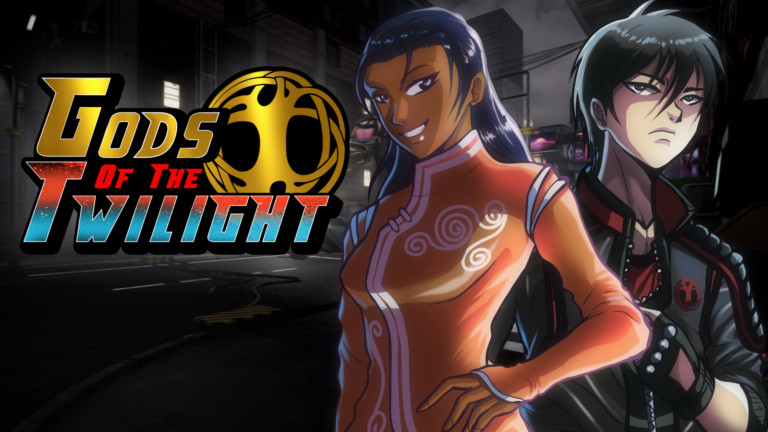
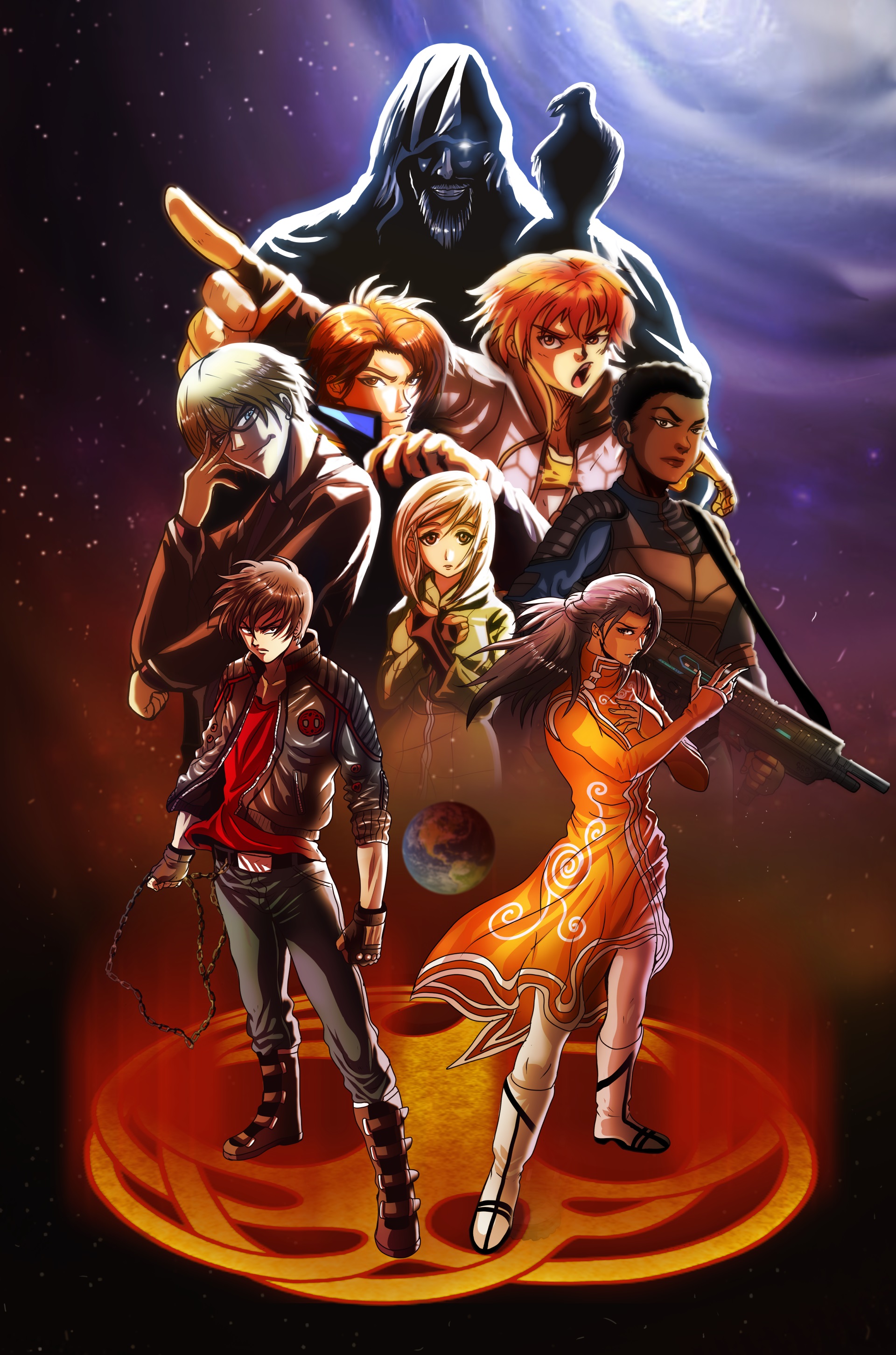
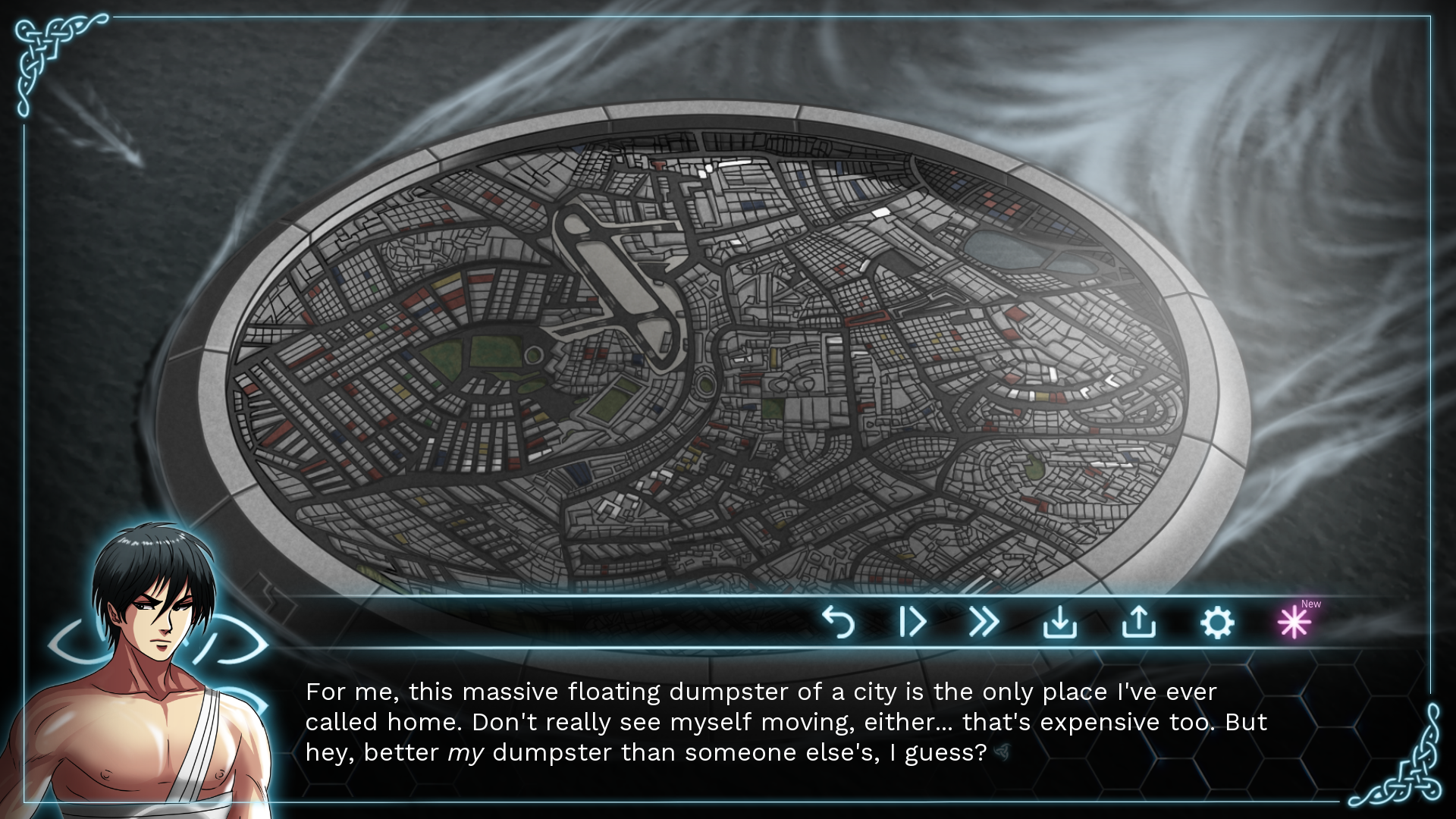
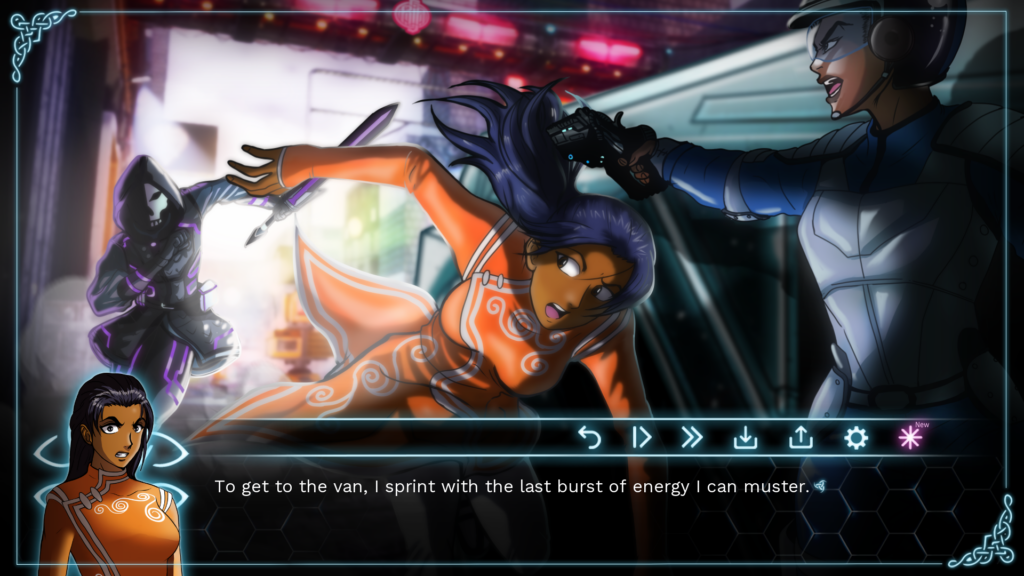
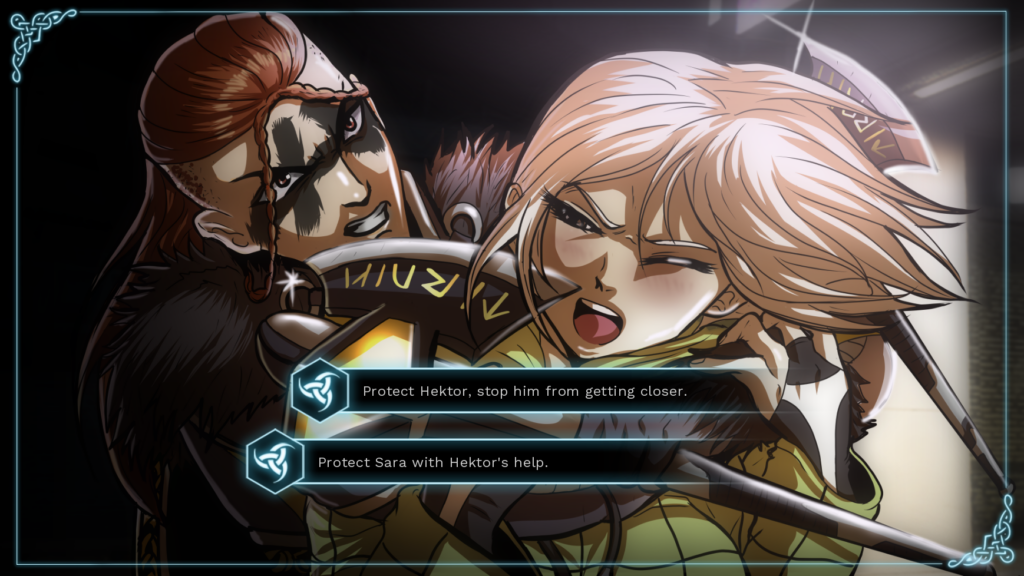
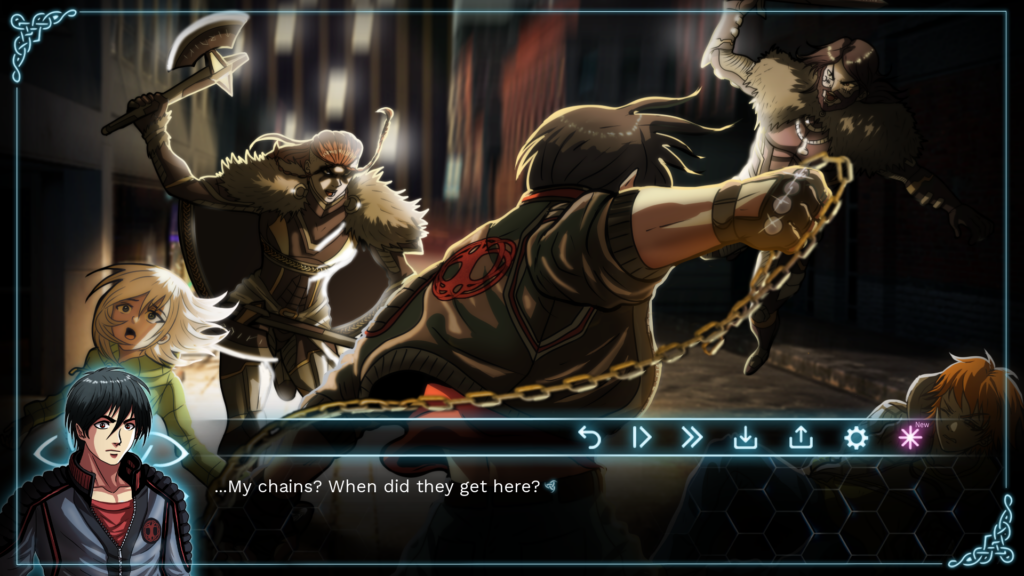
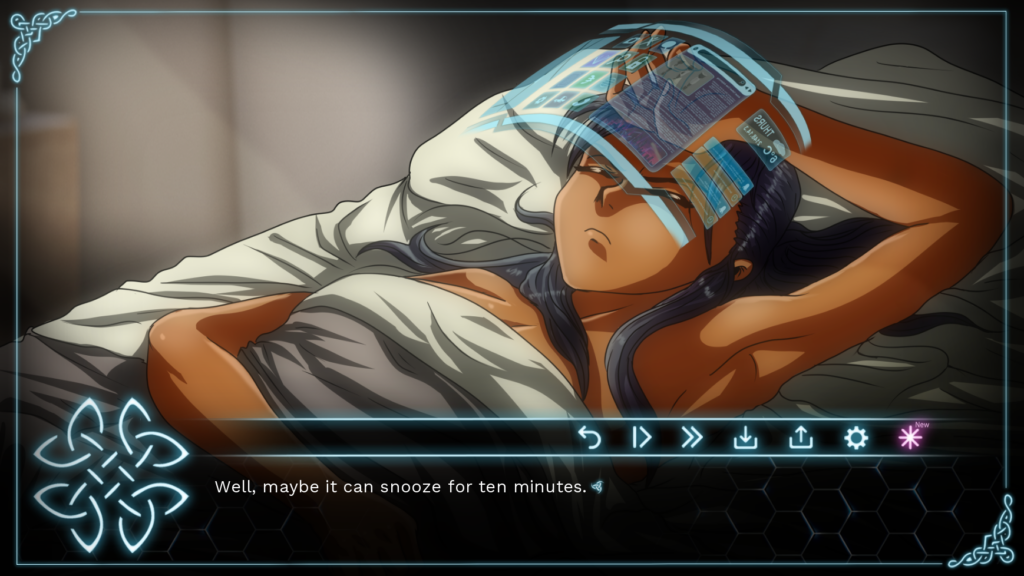
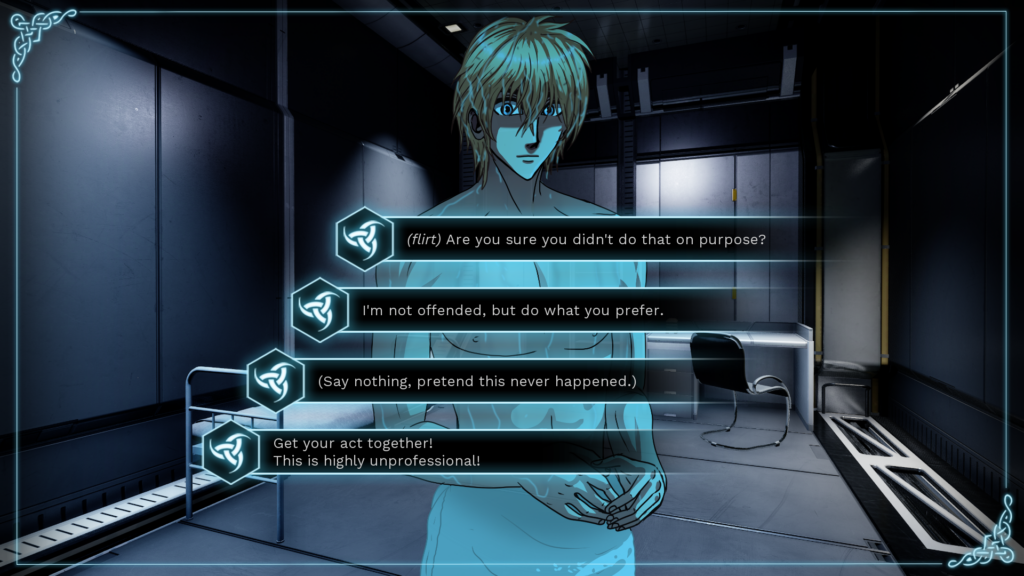
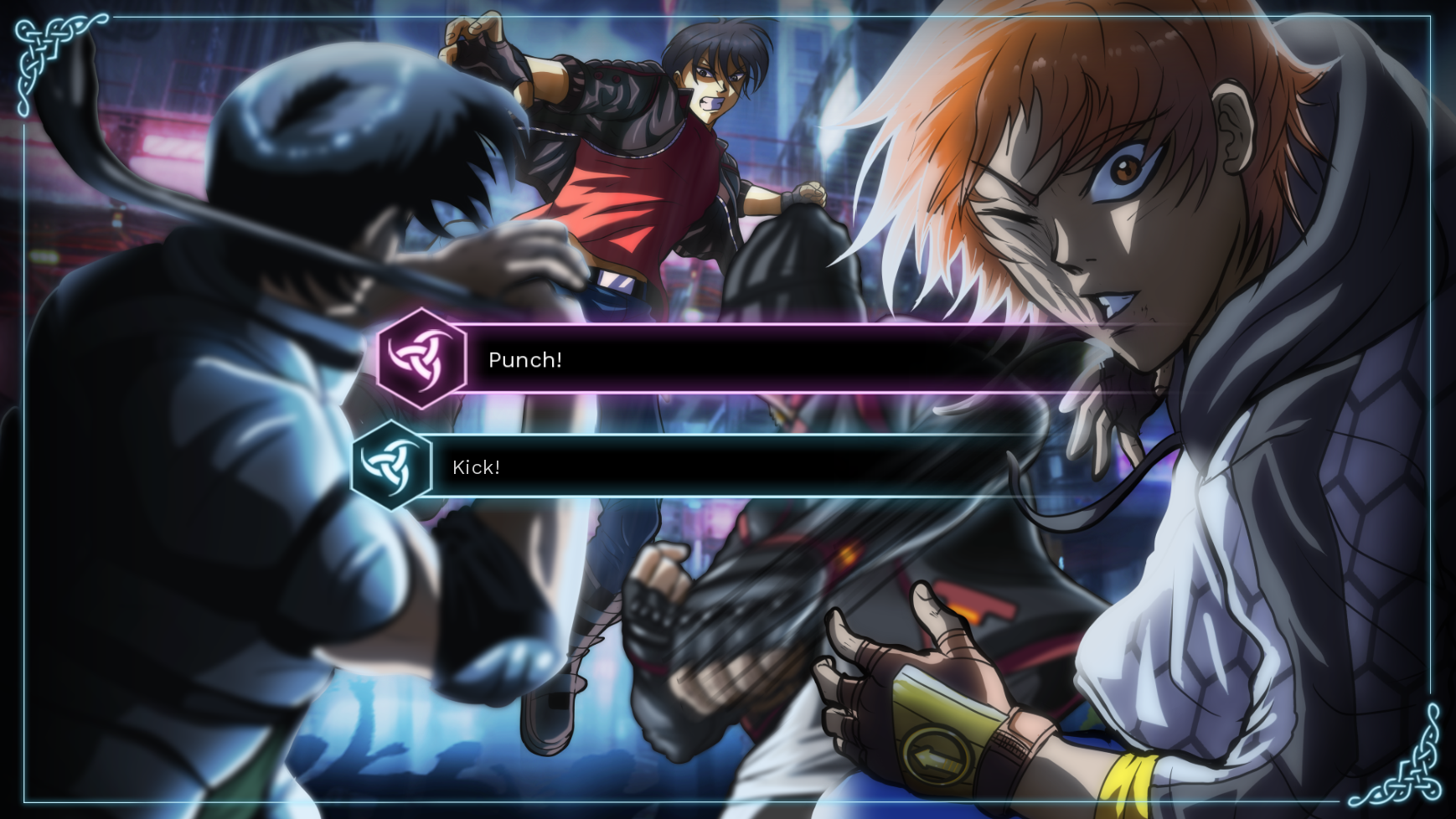
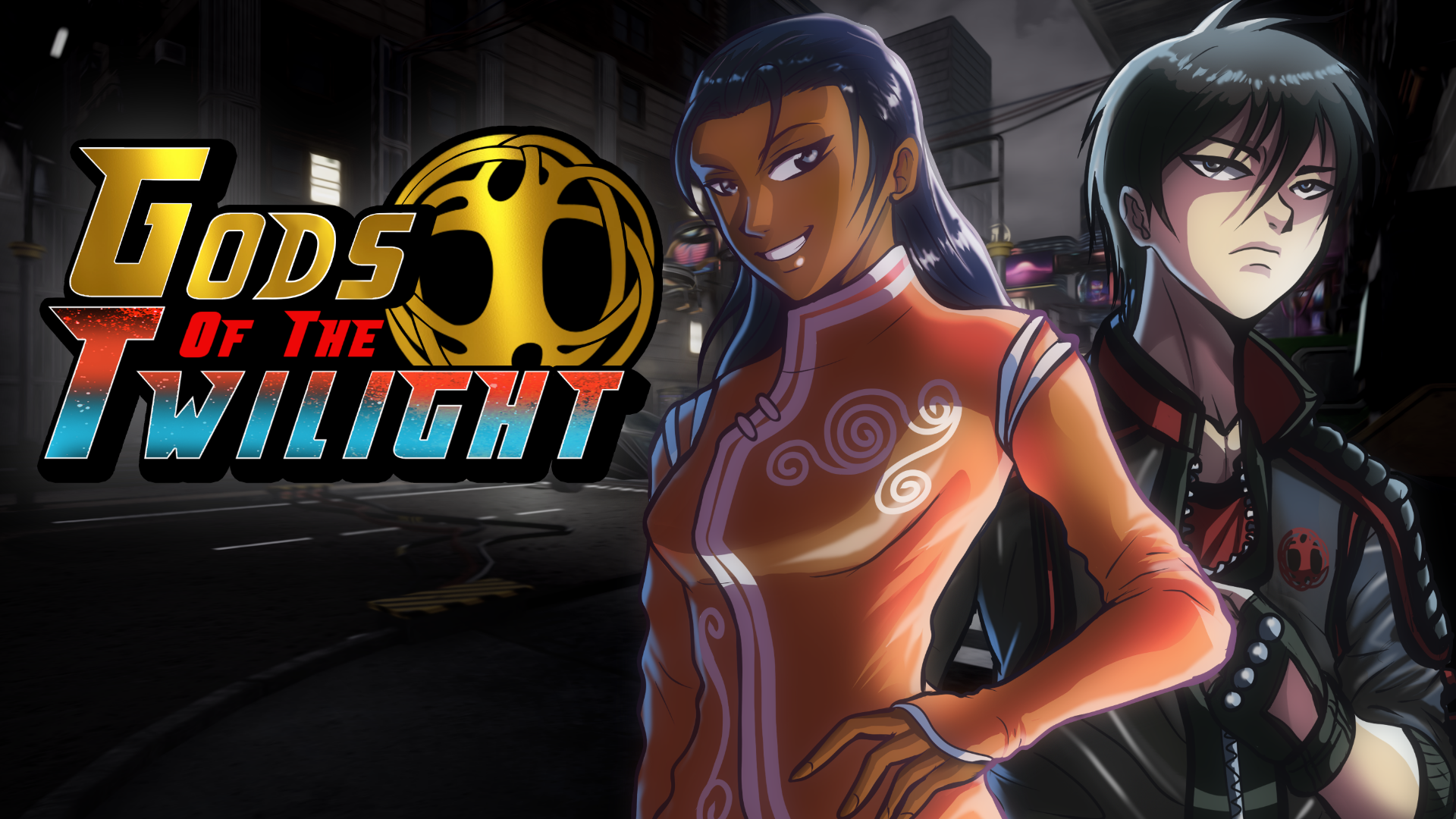
Participate In Discussions